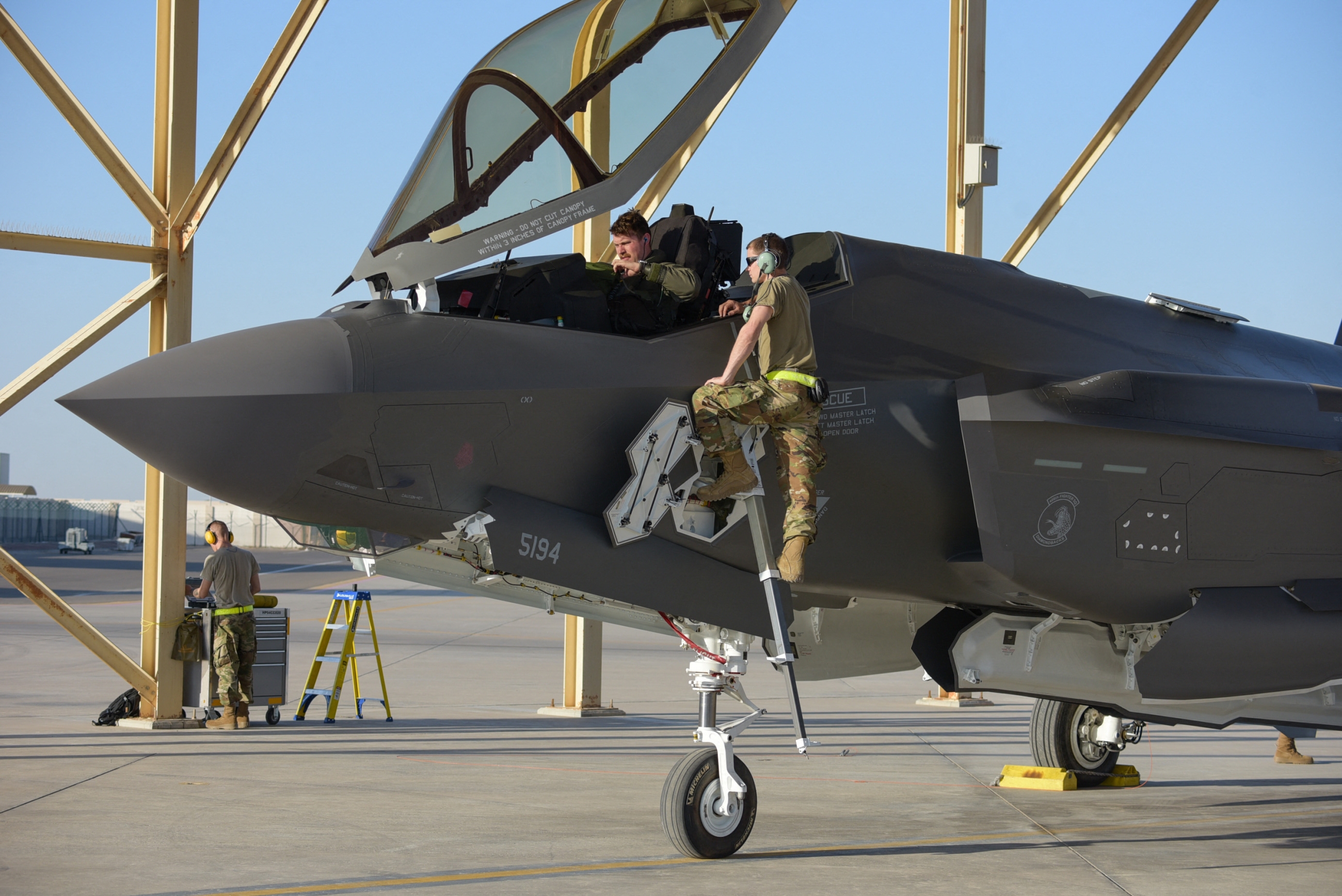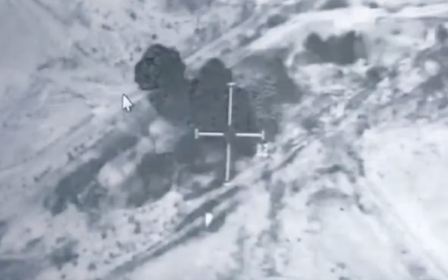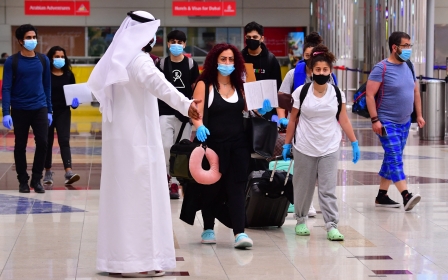Yemen: US to send warship, fighter jets to UAE after Houthi attacks

The United States will deploy a guided-missile destroyer as well as state-of-the-art fighter jets to help defend the United Arab Emirates after a series of missile attacks by Yemen's Houthis, a statement by the US mission to the UAE said on Tuesday.
The statement followed a call between US Secretary of Defence Lloyd Austin and Abu Dhabi Crown Prince Mohammed Bin Zayed al-Nahyan. The two leaders discussed the recent attacks on the Gulf country by Houthi rebels.
The UAE has faced multiple attacks in recent weeks, the latest coming late on Wednesday, with the Emirates saying it had destroyed three drones with "hostile" intent.
On Monday before dawn, the UAE intercepted and destroyed a ballistic missile launched in its direction. The attack came as Israeli President Isaac Herzog made a first-ever visit by an Israeli head of state to the Gulf nation.
The incidents followed two earlier attacks on the Emirates in recent weeks in the wake of intense fighting in southern Yemen, where forces backed by the UAE inflicted major defeats on the Houthi rebels.
In the 17 January attack on the UAE, three foreign workers were killed, while the second attack targeted the al-Dhafra air base as well as "vital and important" locations in the Dubai area, according to a statement by the Houthi group.
The US military has also intervened to aid the UAE in thwarting the attacks, US and Emirati officials told the New York Times.
"The Secretary reviewed a range of actions the Department of Defense is taking to support the UAE," the embassy statement read. "These include continuing to provide early warning intelligence, collaborating on air defense, and sending the U.S. Navy guided-missile destroyer USS Cole to partner with the UAE Navy before making a port call in Abu Dhabi.
"The Secretary also informed the Crown Prince of his decision to deploy 5th Generation Fighter aircraft to assist the UAE against the current threat and as a clear signal that the United States stands with the UAE as a long-standing strategic partner."
Travel warning
In the rebel-held Yemeni capital, Sanaa, senior Houthi official Sultan al-Samei dismissed the US support.
"These new forces that have arrived or will arrive to the UAE do not frighten us," he said.
"We will not stop what we have started, defending ourselves... and we will not stop until the aggression against our country stops, as well as when the forces supported by the UAE withdraw."
The US on Thursday advised its citizens not to travel to the UAE due to the threat of Houthi missile or drone attacks.
'We will not stop what we have started, defending ourselves... and we will not stop until the aggression against our country stops'
- Sultan al-Samei, Houthi official
The UAE is part of a Saudi-led military coalition that supports Yemen's former government against the Iran-aligned Houthi movement.
The war has caused hundreds of thousands of deaths and left millions of Yemenis dependent on humanitarian aid.
In 2019, the UAE said it had withdrawn its troops from Yemen, however, it remains an influential player, backing a recent offensive against the Houthis in the Shabwah governorate which forced the group to retreat.
Houthi officials have said the recent strikes against the UAE are in retaliation for the Emirates' role in the war.
The war in Yemen began in 2014 when the Houthis seized Sanaa, prompting Saudi-led forces to intervene to prop up the government the following year. Air strikes by the Saudi-led coalition have been criticised for targeting civilian infrastructure including schools and hospitals.
Middle East Eye delivers independent and unrivalled coverage and analysis of the Middle East, North Africa and beyond. To learn more about republishing this content and the associated fees, please fill out this form. More about MEE can be found here.





